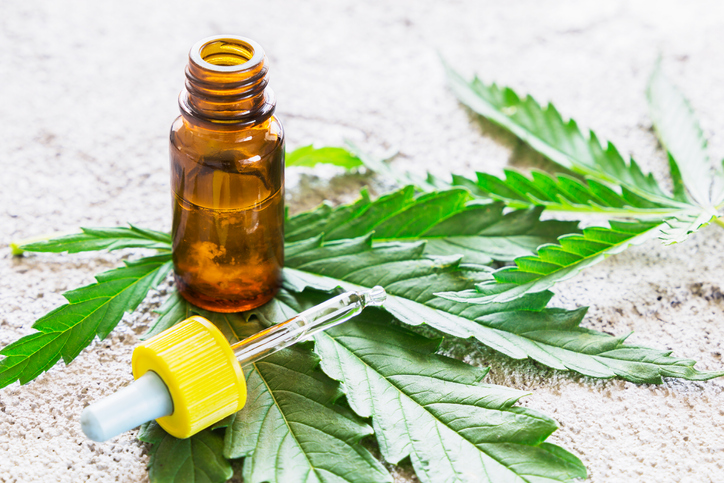Why are doctors reluctant to prescribe medical cannabis?
In Services Development
Follow this topic
Bookmark
Record learning outcomes
 Last year, the campaigning by parents of children with resistant epilepsy prompted a complete switch in UK Government policy towards medical cannabis in just five months. In June, the Home Office was insisting that cannabis had no medicinal value. By November, its position had completely changed, with doctors being allowed to prescribe it through Schedule 2 of the Misuse of Drugs Regulations. You'd think that was problem solved, but sadly it appears that winning the battle over legislation has opened up an entirely new one when it comes to putting it into practice. California-based specialist Dr Rachel Knox offers an explanation based on experience from across the pond.
Last year, the campaigning by parents of children with resistant epilepsy prompted a complete switch in UK Government policy towards medical cannabis in just five months. In June, the Home Office was insisting that cannabis had no medicinal value. By November, its position had completely changed, with doctors being allowed to prescribe it through Schedule 2 of the Misuse of Drugs Regulations. You'd think that was problem solved, but sadly it appears that winning the battle over legislation has opened up an entirely new one when it comes to putting it into practice. California-based specialist Dr Rachel Knox offers an explanation based on experience from across the pond.
The stark reality is that currently only 80 NHS patients have been prescribed medical CBD, and since November last year no new NHS prescriptions have been made. The reason is simple: a lack of understanding amongst medical professionals and confusion over ethics. Training for doctors and pharmacists has not prepared them for prescribing medical cannabis. Most are worryingly unaware of when and how it should be used and, understandably, they do not want to be responsible for prescribing or supplying something they don’t understand. The result is that patients seeking both approval and direction in their cannabis use are finding themselves without support or guidance.
With medical support and prescriptions scarce, those most desperately in need are being driven to the black market for their needs. In fact, the UK’s illicit cannabis market is estimated to be worth over £2.5bn a year with as many as 500,000 people in the UK turning to the black market to manage chronic pain. These non-medical grade products lack sufficient quality control and should not be confused with medical cannabis that has lower levels of tetrahydrocannabinol (THC).
The dangers of patients buying products off the black-market highlights why education is of primary importance. Only by systematically educating medical professionals in usage and prescriptions can we be certain of the standard of product patients are taking and encourage them away from illicit versions (which may do them harm). As a doctor myself in the US, I quickly discovered that my medical training was inadequate on medical cannabis after its legalisation (it's now legal in a majority of states in one form or another). I felt hamstrung because patients expected me, as a doctor, to provide them with that direction and I could not. In many cases the patients knew more than me and I felt humbled by having to come to terms with my own ignorance.
This is a common theme amongst medical professionals. Many prescribers are still cautious of medical cannabis because they are clueless on the plant’s chemical and pharmacology as well as the physiology and pathophysiology of the endocannabinoid system. Only by educating medical professionals on the facts, can we deliver precision cannabinoid medicine to every patient looking for a personalised approach to healing. Educational outreach should also include the wider communities who will be impacted physically, economically, socially and politically.
It is also of primary importance that clinicians have fully appraised themselves with the National Institute for Health and Care Excellence (NICE) guidelines. This can aid the prescription process and act as a referral document should there be any concerns. This being said, these guidelines are vague and can in no way compensate for a proper education on how to prescribe CBD in the UK.
The prescription process in the UK to get the patient’s products is also lengthy and time consuming for both doctors and pharmacists. Prescriptions are only valid for 28 days and doctors are advised to only prescribe a month’s worth at a time. In order to receive the product, the UK importer needs to apply to the Home Office for a licence to be able to bring the product into the UK. This process can take up to 28 days, and by then the prescription may have expired, making it extremely difficult for patients to get hold of the product, even though they have been prescribed it.
As opinions and education surrounding the subject improve, more medical professionals will become comfortable prescribing the product. As a result, many more patients’ lives will be made more comfortable through having access to a medication which truly makes a difference to their condition.
Dr Rachel Knox trained in family and integrative medicine before pursuing additional study in the areas of functional medicine, cannabinoid medicine and endocannabinology. She recently spoke in London at the inaugural 'Women, CBD and medical cannabis' Conference, designed to create discussion on the cannabis industry's red tape.
